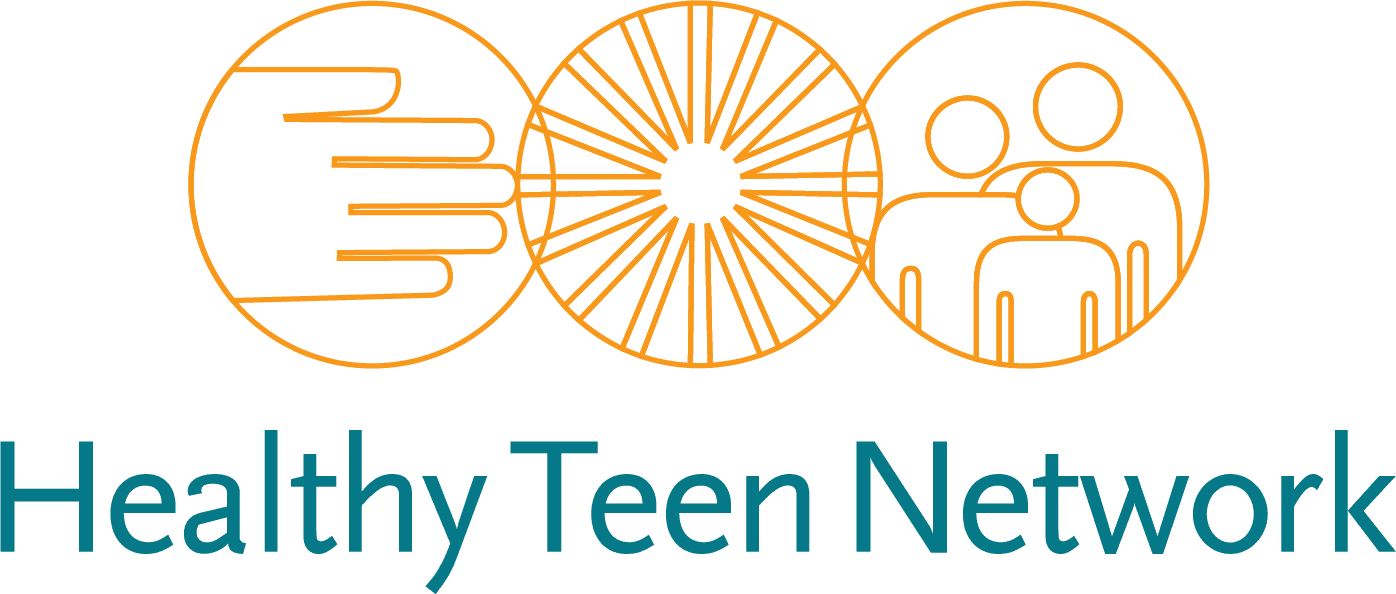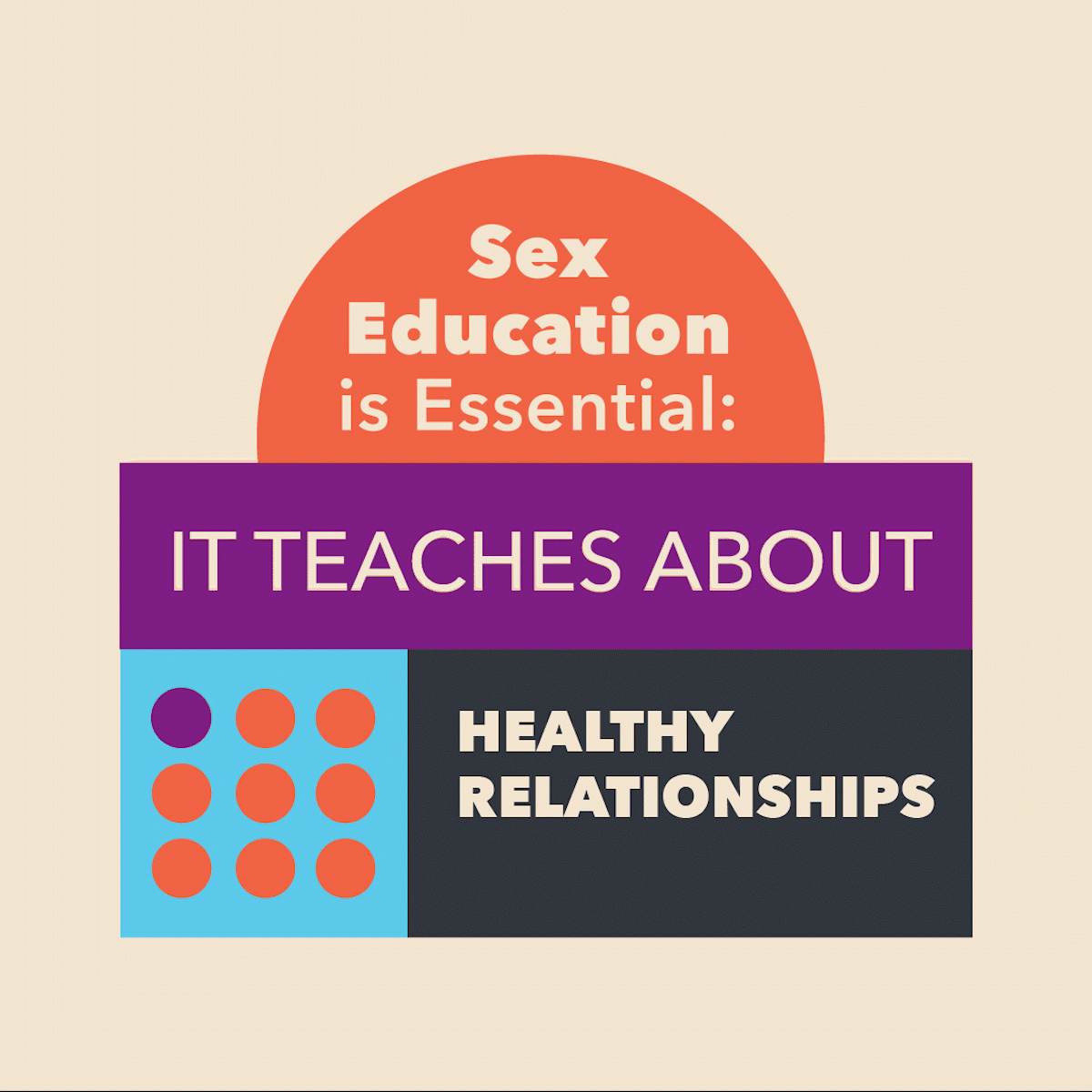
Together, by advocating in our communities, we can ensure Sex Ed for All.

April 16, 2024
As April starts to wind down, and as we look ahead to the start of May on the horizon, we wanted to take a moment to share with you the history behind May as Sex Ed for All Month. We also wanted to share—for you to also use and adapt—some of the main reasons why sex education is essential and we should join together to advocate for Sex Ed for All.
Background
We all want the best education for our kids, including sex education. Sex education helps young people learn how to have healthy relationships, make informed decisions, love themselves for who they are, and have respect and compassion for all, including those who are different from them.
Each May since 2019, Sex Ed for All Month is an opportunity to voice our shared commitment to a world where all young people get equitable access to the education and care they deserve. We invite you to join us in raising awareness and calling for real investment in sex education in schools and communities. Too many young people fail to receive the sexual health information, education, and access to the care they need to live healthy lives—oftentimes based on who they are and where they live.
This is also an opportunity to push back on efforts by organized, well-funded right-wing groups to dismantle our democratic institutions, including our nation’s public schools.
While May was formerly known as Teen Pregnancy Prevention Month, the shift to Sex Ed for All Month marked a dramatic turn away from what was previously often stigmatizing and problematic messaging. Instead, we want to stand with young people, so they have the power and the right to access the sex education and health care they need to achieve the best positive outcomes for themselves.
This is also an opportunity to push back on efforts by organized, well-funded right-wing groups to dismantle our democratic institutions, including our nation’s public schools. Schools are ground zero for the culture wars, and conservative groups are intentionally lying to confuse and frighten parents/caregivers, intimidate educators and administrators, and limit young people’s access to information. They are zeroing in on comprehensive sex education, especially lessons related to puberty, gender identity, sexual orientation, and pregnancy. Multiple states have passed outright bans on discussing some of these topics in K—12 environments. These same groups are also behind attacks on abortion and contraception, safe schools for LGBTQ youth, books written by and about BIPOC and LGBTQ+ people, and the teaching of inclusive U.S. history and social-emotional learning as part of an agenda to ensure that they maintain power and control.
Sex Ed For All Month is coordinated by the Sex Education Collaborative, in collaboration with a national coalition of sexual and reproductive health, rights, and justice organizations committed to ensuring equitable and accessible sex education for ALL young people nationwide.

Sex education is about so much more than risk reduction and disease prevention. Sex Ed for All Month provides an opportunity to adjust the lens through which our field has historically viewed adolescent sexual and reproductive health and address more holistically the sex education young people deserve so they can have healthy relationships, make healthy decisions, and have positive health outcomes. While May was formerly known as Teen Pregnancy Prevention Month, the shift to Sex Ed for All Month marked a dramatic turn away from what was previously often stigmatizing and problematic messaging. Instead, we want to stand with young people, so they have the power and the right to access the sex education and health care they need to achieve positive outcomes for themselves.
Main Message
Sex education gives young people age-appropriate, medically accurate, and culturally relevant information and answers to their questions about sex and relationships without being shamed or judged. It has been proven to positively impact young people’s lives. But too many young people don’t have access to sex education, or the programs in their school are shaming or inaccurate. By advocating in our communities, we can ensure Sex Ed for All.
Talking Points
We all want the best education for our kids, including sex education. Sex education helps young people learn how to have healthy relationships, make informed decisions, love themselves for who they are, and have respect and compassion for all, including those who are different from them.
Sex education is more than just putting condoms on bananas. And it’s even more than just STI prevention and avoiding unintended pregnancy. Sex education teaches young people how to have healthy relationships with themselves and others.
Sex education is more than just putting condoms on bananas. And it’s even more than just STI prevention and avoiding unintended pregnancy. Sex education teaches young people how to have healthy relationships with themselves and others.
Sex education in elementary school covers foundational building blocks around things like consent and boundary setting with friends, understanding our bodies and puberty, and acknowledging and respecting different kinds of families.
Sex education in middle school addresses relevant issues such as healthy peer relationships and anti-bullying, staying safe online, and media literacy skills to support kids in developing a healthy body image.
Sex education in high school covers everything from birth control and safer sex to sexual decision-making and communication skills to understanding how society and culture shape our ideas about sex, gender, and race.
Sex education addresses a wide range of topics in age-appropriate ways to help keep young people safe, healthy, and happy.
Sex education works. It gives young people the knowledge and skills they need to grow up safe, healthy, and confident, and it sets them up for success in a diverse society.
Research shows that sex education that is culturally responsive and inclusive helps young people develop the social and emotional skills they need to become kind and empathetic human beings. This type of sex education (early and often) leads to better body image, more empathy and respect for others, better communication skills, better management of feelings, better sense of self-control and safety, prevention of child sex abuse and dating and intimate partner violence, development of healthy relationships, better understanding of gender equity and appreciation of sexual diversity, and more protection against mis/disinformation, both online and from peers.
Sex education that is age-appropriate and covers a range of topics is what young people need from trusted, unbiased experts.
Research also shows that sex education helps students become healthier and more well-adjusted adults. It leads to lower STI rates, fewer unintended pregnancies, better self-esteem, healthier relationships, and many more benefits.
From the American Medical Association to the American Academy of Pediatrics, experts agree that sex education that is comprehensive (covers a range of topics), inclusive, and medically accurate is critical for young people.
All kids deserve to feel safe and proud of who they are. Young people who receive sex education have better self-esteem and healthier relationships.
Sex education teaches young people the importance of treating everyone with dignity and respect, including themselves. These lessons are important to help young people develop into healthy adults. Sex education that teaches diversity, equity, and inclusivity can also help build school connectedness, which in turn supports student achievement.
Sex education is not a controversial issue. The overwhelming majority of Americans want young people to get sex education—including parents and young people themselves.
The vast majority of Republicans and Democrats agree that sex education covering a wide range of topics is important to teach in middle and high school.
96% of parents support having sex education in high school, and 84% of parents support having sex education in middle school.
Parents/caregivers want their kids to have the facts and feel safe and supported at school. Sex education that includes LGBTQ+ identities has been shown to reduce bullying, discrimination, and harassment, meaning schools are safer for all youth.
Sex education at school supports sex education at home. School programs reinforce the role of family communication about sex and relationships, supporting young people in talking with their parents/caregivers.
Sex education has never been universally accessible, but now it’s even more at risk due to anti-sex education movements funded by powerful groups.
Where you live shouldn’t determine the quality of the education you receive. However, without a national sex education program or full funding at the federal level, the quality of programs varies across the country, if they exist at all. Young people deserve the facts about sex and relationships, free of shame, stigma, and personal or political agendas, no matter who they are, where they live, or what their income is.
Opposition to honest education is nothing new. There has always been a vocal minority intent on stopping honest, equity-centered education that could lead to positive social change.
In the 1950s, this same vocal minority focused on keeping Black students out of all-white schools. In the 1990s, the goal was to censor facts regarding evolution in science classes. Now, this very same vocal minority is creating a false panic about sex education and all equity work in schools.
Between 2022 and 2023, there was a 73% increase in so-called “parental rights” bills, which attempt to limit individual freedom in the name of “honoring” parents’ rights in education, and an 800% jump in anti-sex education bills that passed into law compared to in 2022.
Extreme groups are funding and organizing a vocal minority of individuals—wrongly portrayed as a grassroots effort—to stoke fear and outrage around sex education in communities across the country. Groups like Moms for Liberty blatantly lie to cause panic so they can dictate what is and isn’t allowed in schools—including pushing for abstinence-only-until-marriage programs and banning students from safely using the bathroom that matches their gender identity.
To create an illusion of grassroots resistance, these groups have brought people from other towns or states to pretend they live locally and take over school board meetings. They fund big social media disinformation campaigns and harass young people, parents, and school staff who advocate for real education and safe schools.
Young people are increasingly left alone, without the information or services they need to keep themselves safe and help them set boundaries with others.
Without adequate sex education or access to things like contraception, abortion, or gender-affirming care, young people suffer, particularly our most vulnerable youth—LGBTQ+ youth and youth of color.
You can take action to advocate for sex education in your community starting today. All you need to do is ask the right questions and join with others in your community to ensure sex education for all.
You can ask young people what, if any, sex education they’ve gotten in school. Find out what they’re being taught, if they feel included, and what they wish school would teach that they currently don’t.
You can find out who is making decisions about sex education at your local school. It may be a health coordinator, an individual teacher, or a district-wide School Health Advisory Committee (SHAC). You can contact the teacher, coordinator, or committee chair to learn about how decisions about sex education are made and what is currently being taught.
You can find out from your local school’s PTA and/or school board what sex education is taught in your community. This includes how often and when sex education is being taught, as well as what topics are being taught, what curriculum is being used, and who is teaching the program.
If you want better sex education in your local school, you can go to PTA and/or school board meetings to tell them what you want for sex education, asking them to include a wide range of topics in age-appropriate ways taught by unbiased experts.
Want more information on #SexEdForAll? These talking points were developed by the Sex Education Collaborative as part of Sex Ed For All Month.
PHOTO CREDIT: Monkey Business on Adobe Stock
At Healthy Teen Network, we believe every young person has the right to be who they are and love who they love. And we see you, the professionals and caring adults, helping them do this. We know you do your best when you're connected to great opportunities and resources. That's why we're here...to help make those connections and support you. Read more about us.












